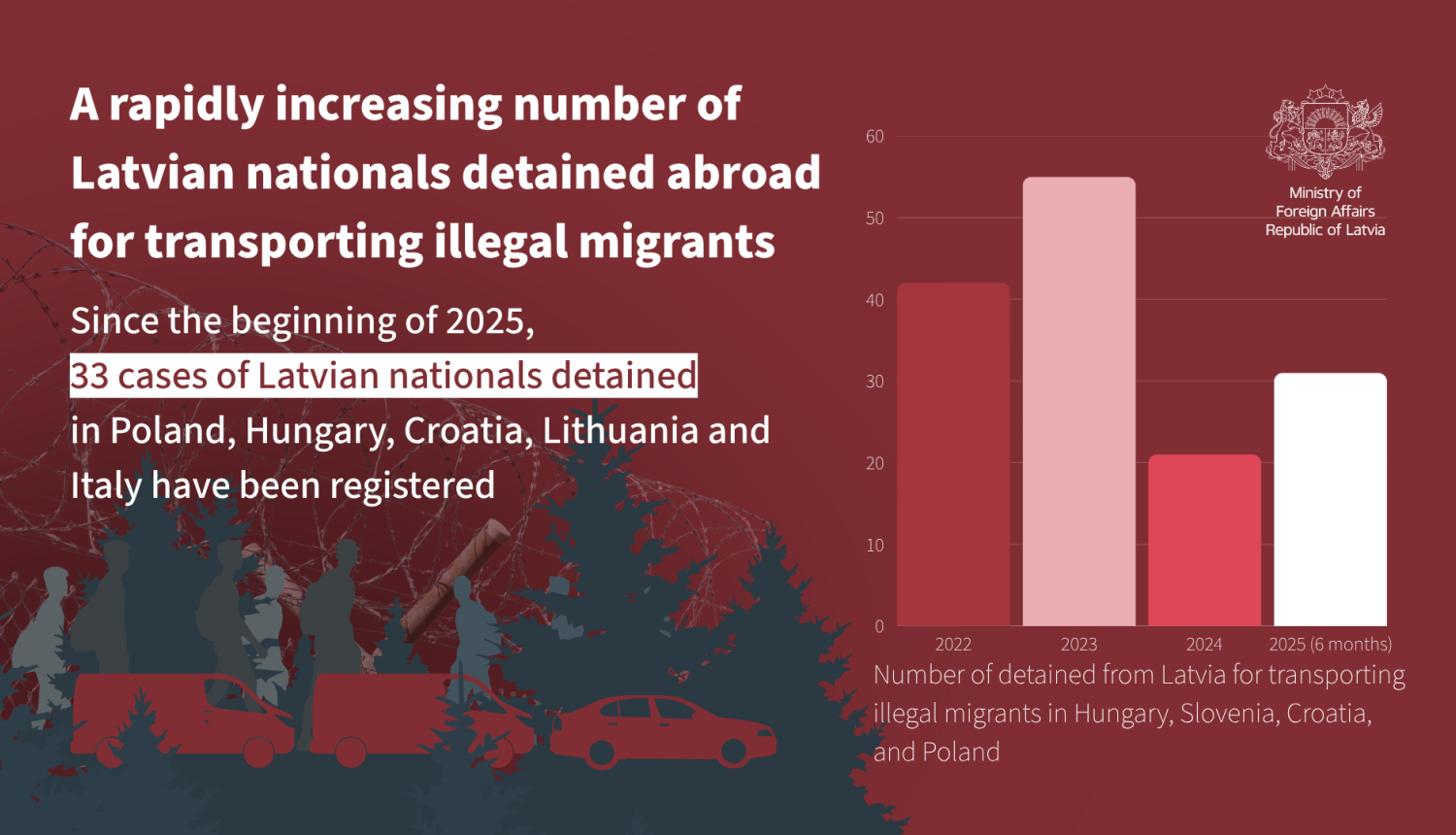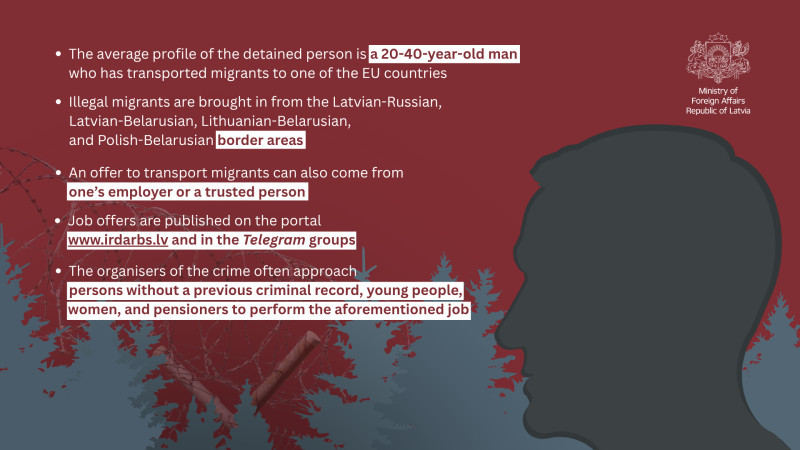International organised crime groups continue to actively recruit Latvian nationals via social networks, offering them work as transporters in European countries – Hungary, the Czech Republic, Croatia, Slovenia, Poland, and Serbia. The job offers and the remuneration promised are tempting, so according to information available to the Ministry of Foreign Affairs, several dozen Latvian nationals have already accepted the offer.
Since the beginning of 2025, the Embassy of Latvia to Poland has received information about 25 Latvian nationals detained, the Embassy of Latvia to Hungary – about five, while one case of detention has been registered in Croatia, Lithuania, and Italy each. In total, 33 cases of Latvian nationals detained have been reported since the beginning of the year.
Although, according to recruiters, the job duties include transportation of goods, in reality, employees are forced to smuggle immigrants from Iran, Syria and other third countries into the European Union. This is a criminal offense, for which individuals risk detention and trial in the country where the crime was committed, and the penalties for immigrant smuggling are severe. For example, in Poland, this crime is punishable by 8 years in prison.
The Ministry of Foreign Affairs strongly urges Latvian nationals to carefully evaluate any job offer in a foreign country and warns against agreeing to promises of easy profits from unverified employers, as they may have intent to commit crime. In cases where, while performing work duties, doubts arise as to whether passenger transportation is legal, the Ministry of Foreign Affairs urges that before transporting persons, the hired staff always verify the identity of the persons in their vehicle and their residence rights in the European Union.
Please be reminded that drivers of public transport vehicles, taxis and other vehicles must comply with the laws of the Republic of Latvia and other countries. Any activities related to moving of illegal migrants or supporting those staying illegally in the territory of Latvia or other European Union Member States are illegal and punishable by law.
If you suspect that you are being offered to engage in illegal activities, do not hesitate to contact the nearest police station and file a report.
Persons who find themselves in an emergency situation abroad are invited to contact the round-the-clock Duty Officer at the Consular Department of the Ministry of Foreign Affairs by phone: +371 26337711 or e-mail: palidziba@mfa.gov.lv.
Latest updates are also available at www.cilvektirdznieciba.lv.
FACTS
- Since the beginning of 2025, 33 Latvian nationals have been detained in Poland, Hungary, Croatia, Lithuania and Italy.
- In 2024, 21 illegal migrant smugglers from Latvia were detained in Hungary, Slovenia, Croatia, and Poland (42 in 2022; 55 in 2023).
- The average profile of the detained person is a 20- to 40-year-old man who has transported migrants to one of the European Union Member States (e.g., Poland, Germany, or Austria) in a minivan or a car rented in Latvia or another country.
- Also, illegal migrants are often brought in from the Latvian-Russian, Latvian-Belarusian, Lithuanian-Belarusian, and Polish-Belarusian border areas.
- An offer to transport migrants can also come from one’s employer or a trusted person.
- Job offers are often published on the portal www.irdarbs.lv, as well as in the Telegram groups.
- The organisers of the crime often approach persons without a previous criminal record, young people, women, and pensioners to perform the aforementioned job.
Detainees and their relatives should bear in mind that a Latvian diplomatic or consular mission cannot:
- interfere with the activities of foreign courts, police and law enforcement agencies if a Latvian citizen has committed an offense abroad;
- provide legal advice and lawyer services;
- provide interpreter services.
Every detainee is provided with a lawyer and, if necessary, an interpreter by the foreign country in which the person is detained. If the person is not satisfied with the lawyer or interpreter assigned to them, the embassy may send a list of available lawyers and interpreters; however, the decision on the choice of a specific service provider is made by the detainee himself and his family members.





